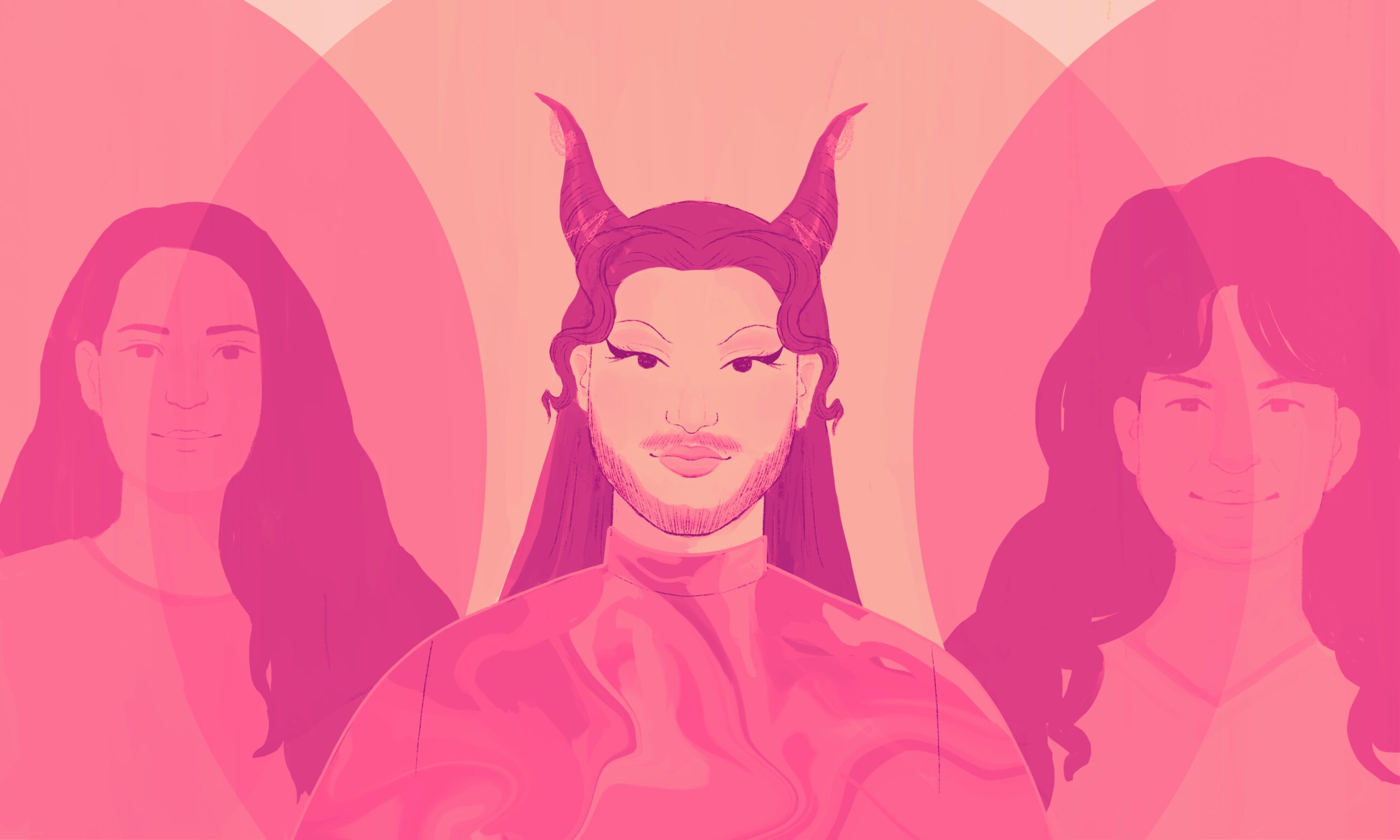
EMILY WHANG / NEXTGENRADIO
What is the meaning of
home?
For Kali Fuchis, home is not a physical location. For her, home means taking the teachings of her mother as well as her grandmother, Mamí Azu, and embodying these women through powerful femininity.
Feminine strength and matriarchal power: Building a home from within
Feminine strength and matriarchal power: building a home from within
Click here for audio transcript
My grandma who, her name is Mamí Azu. Mamí ’cause that’s Spanish and Azu is short for Azucena, which means lily in Spanish. And she was a firecracker. She would always be like, just be you. And like, if you’re not confident, if you just don’t trust yourself, people are gonna feel that.
Hi, I am Kali Fucis and my pronouns are she, they. I am this punk, witch drag artist, slash community enthusiast.
Everyone growing up in Ecuador always wanted to be at our house or always wanted to be at my grandmother’s house, and it was because of this energy of they know that here they get to be open here, they get to be talkative here, they get to be expressive.
I moved when I was three to the US and so my grandmother and then my mom, eventually she became the matriarch after my grandmother, you know, got much older, and in the US you really see her taking what Mamí Azu took in Ecuador to gain that first base of: we now have citizenship here.
From 3 to 6 I just remember my mom having three jobs, sleeping only four hours every single day. She learned English through a dictionary at an airport job that she got by like faking it.
And so all of that to say that I was feeding all that. I was soaking it in and I was being taught it too.
Home is interesting for someone who’s moved a lot. From 17 to like 23 is where I think there’s a dark period in my life. I was moving like every year in college. I think a lot of it was, uh, what the [bleep] does home mean?
What does, you know, what does grounding yourself, what does roots mean in this moment? I was putting a lot of pressure on myself. Part of the reasons why it was really dark was because I wasn’t using any tools or coping, nor was I aware of it.
SOUND OF WALKING TO MIRROR [I’m gonna quickly just go to this mirror back here.]
When I started doing drag, that helps me channel the powerful women that have been in my past and also a way to connect with them, right? Like it is a ceremony for me.
SOUND OF SHOWING A DRESS [Um, this one is good. I haven’t worn in a while. Just being a Latina, I have a big butt and it’s split in the back. This to me is like very showgirl. So for people who don’t know, dresses with a lot of stoning either are really expensive, and take a lot of time. And so this is like a flower embellishment. It has gold in the middle with a lot of beading around it to create a star flower type of imagery. And then there’s black beading like all around it.]
So that I think to myself, these women in your life have just taught you to just center yourself, breathe and learn when to lean on other people, specifically people with like strong femininity, to really help you get to that next level and knowing that you can do it. You literally can.
SOUND OF SHOWING WIG [I am wearing a horned Maleficent-esque wig where the hair is the horns, and so there’s like styrofoam in them and there’s like chain mail on the horns, and I’m wearing a like groovy mesh print see-through dress with some, um, I call them knockoff Versace heels, but they’re just from ASOS.]
I didn’t realize how the slick back hair, the makeup that I was doing, the stuff that I was like, I look like my mother. To me it was really fun to see how subconsciously that was coming out.
Being in drag as a woman, sometimes that physical form does help all the intrinsic things you may feel. And so like my grandmother’s not here anymore, she died of cancer. Anytime I needed to stick up for myself is where Kali would come out. And so I say that all to say that I think without noticing it, my grandmother and my mom always lived within me, and that’s what I do with Kali now.
Standing in her knock-off Versace heels and mesh mini dress, Kali Fuchis pulls a gown out of her hall closet. The horns of her Maleficent-type wig scrape the top of the closet doorway.
The dress stretches to the floor, catching the afternoon light in each of the black and amber beads that swirl across the length of the dress.
“This, to me, is like, very showgirl,” says Fuchis, a proud Latina. “Like a lot of 1950, 1960s bombshells were actually Latina.”
This dress is more than just a pretty outfit to Fuchis. It connects to home.
“I didn’t realize how this, like black hair, the makeup that I was doing … I look like my mother,” says Fuchis.
Fuchis, 26, is from Guayaquil, Ecuador, where she grew up surrounded by matriarchs and feminine energy.
A picture of her shows a young boy with a toothy grin, surrounded by balloons and birthday cakes, in the arms of her mother. Her grandmother, who they called Mamí Azu, is off to the side with an even wider grin.
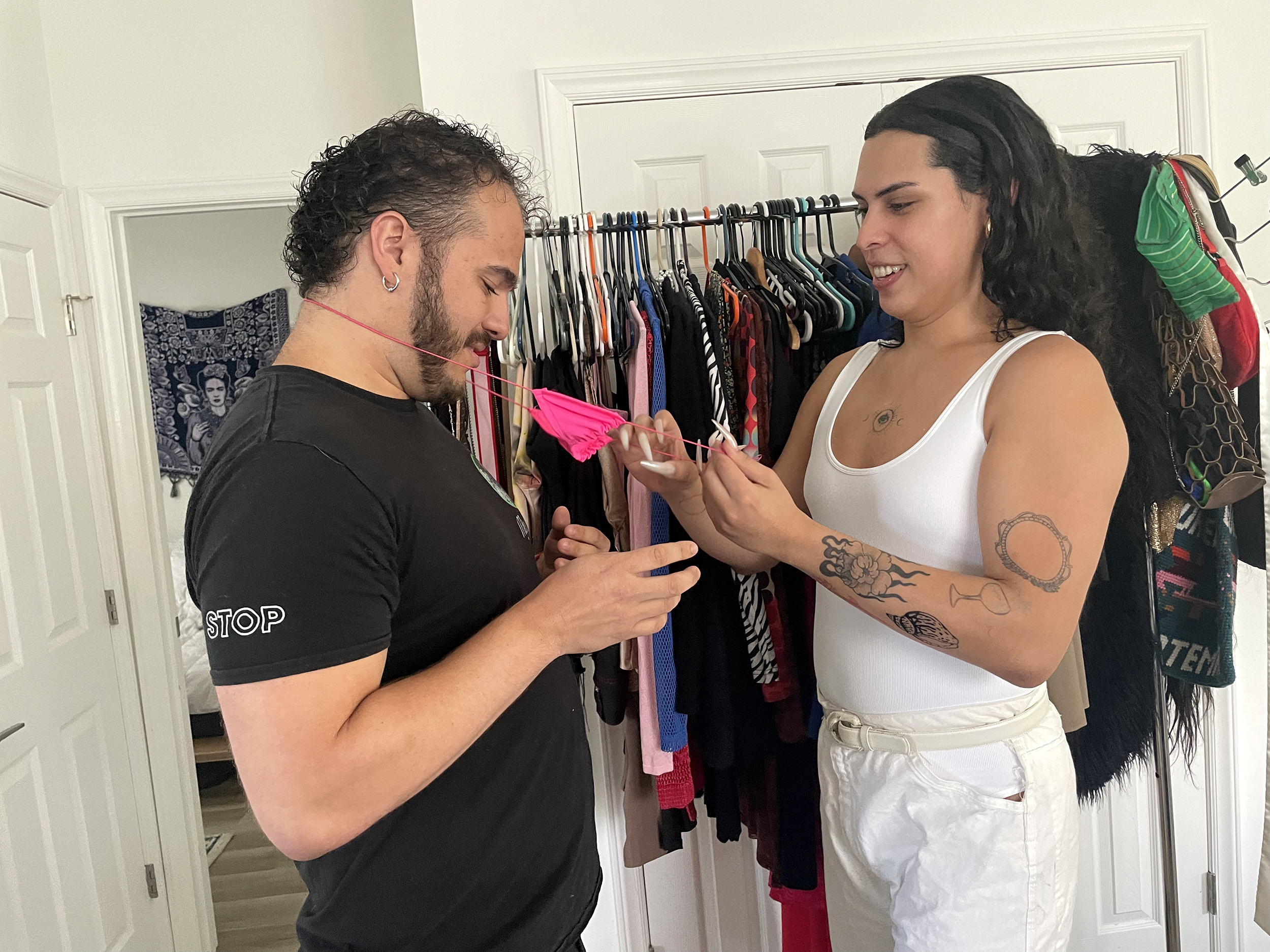
Niccolo Roditti/Kali Fuchis (left) stands with Miss B. Haven, who is dressing them with a neon pink string bikini in their apartment in Durham, N.C., on Tuesday, August 1, 2023. Miss B. Haven is Fuchis’ drag mother and pushed Fuchis to start doing drag.
LORELAI SYKES / NEXTGENRADIO
These women raised Niccolo Roditti, and also helped create their drag persona Kali Fuchis.
As Fuchis, she usually wears neon outfits and sports elaborate eyeshadow looks with perfectly applied lipstick. And, as Roditti, they — their preferred pronoun when not in drag — are still the same person. To Fuchis, their relationship is not complicated: Roditti is Fuchis and Fuchis is Roditti.
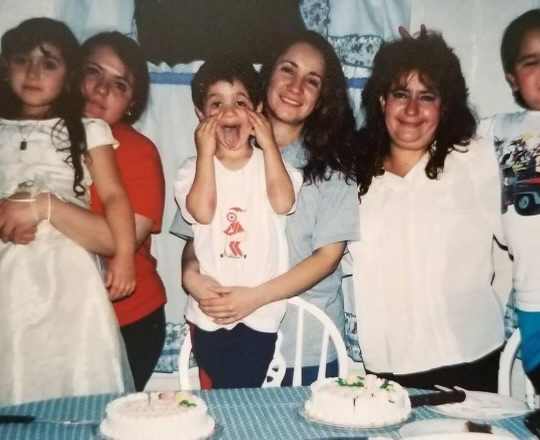
Niccolo Roditti (middle) celebrates a family birthday in Ecuador with Mamí Azu (right) and their mother (behind Roditti) in the year 2000. These are the two women who shaped who Roditti and Kali Fuchis is today.
COURTESY OF KALI FUCHIS
When Fuchis was 3 years old, her mother moved their entire family to Providence, Rhode Island, amidst political and economic struggles in Ecuador.
“She became the matriarch after my grandmother got much older, and in the U.S., you really see her taking [the role] Mamí Azu took in Ecuador,” says Fuchis.
Fuchis felt like an outcast as a kid. She was hyper, imaginative, and in her own words: weird. With such powerful women in her life, Fuchis says they encouraged her to accept herself unapologetically, and she believes this influenced her strong connection with femininity. But, this drove a wedge between her relationship with her father.
“As a man, he didn’t really know how to give more to a son that was different,” says Fuchis.
Eventually, Fuchis’ mom moved the family to the United States. But, Fuchis’ father did not go, since he was not able to get the proper visa.
“Home is interesting for someone who has moved a lot.”
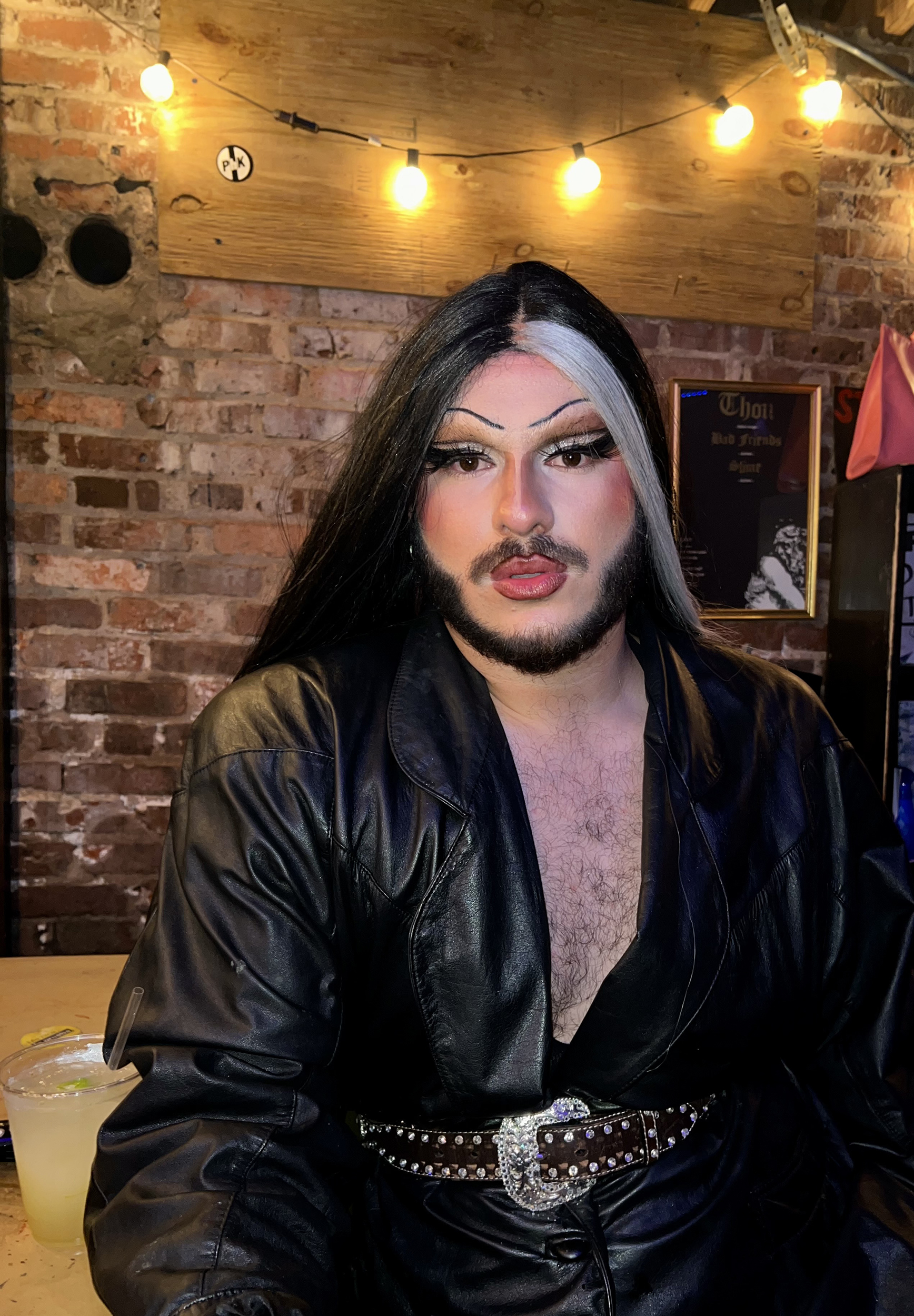
Kali Fuchis sits in Pinhook, a bar in Atlanta, in full drag after a pride event this year. It can take hours to apply makeup, put on wigs and pick out outfits before a show.
COURTESY OF KALI FUCHIS
So, Fuchis watched her mother work two or three jobs to provide for their family, sleeping only four hours some days. Fuchis says her mom spoke no English, in a strange, new country, raising kids alone.
“She learned English through a dictionary at an airport job that she got by, like, faking it,” Fuchis recalls.
Fuchis moved all over the U.S., from Rhode Island to North Carolina to Tennessee. Most of that time she was with her matriarchal family.
“Home is interesting for someone who has moved a lot,” Fuchis says.
It was when Fuchis left home at 17 that she fell into what she describes as a dark period in her life. Pressure surrounding college, constant moving, and identity began mounting on her shoulders.
And now, Fuchis was on her own for the first time as an adult.
“Part of the reason why it was really dark was because I wasn’t using any tools or coping [mechanisms],” she says. “I was like, ‘What am I doing?’”
Eventually, she moved back to North Carolina, returning to where her first drag show took place, and where she met her drag mother and mentor, Miss B. Haven.
This is what she says she was missing in Tennessee: the connection to the strong women who raised her.
Miss B is the one who put Fuchis in drag for the first time.
Fuchis still recalls watching Miss B cheer her on from the sidelines of Fuchis’ first show in Durham.
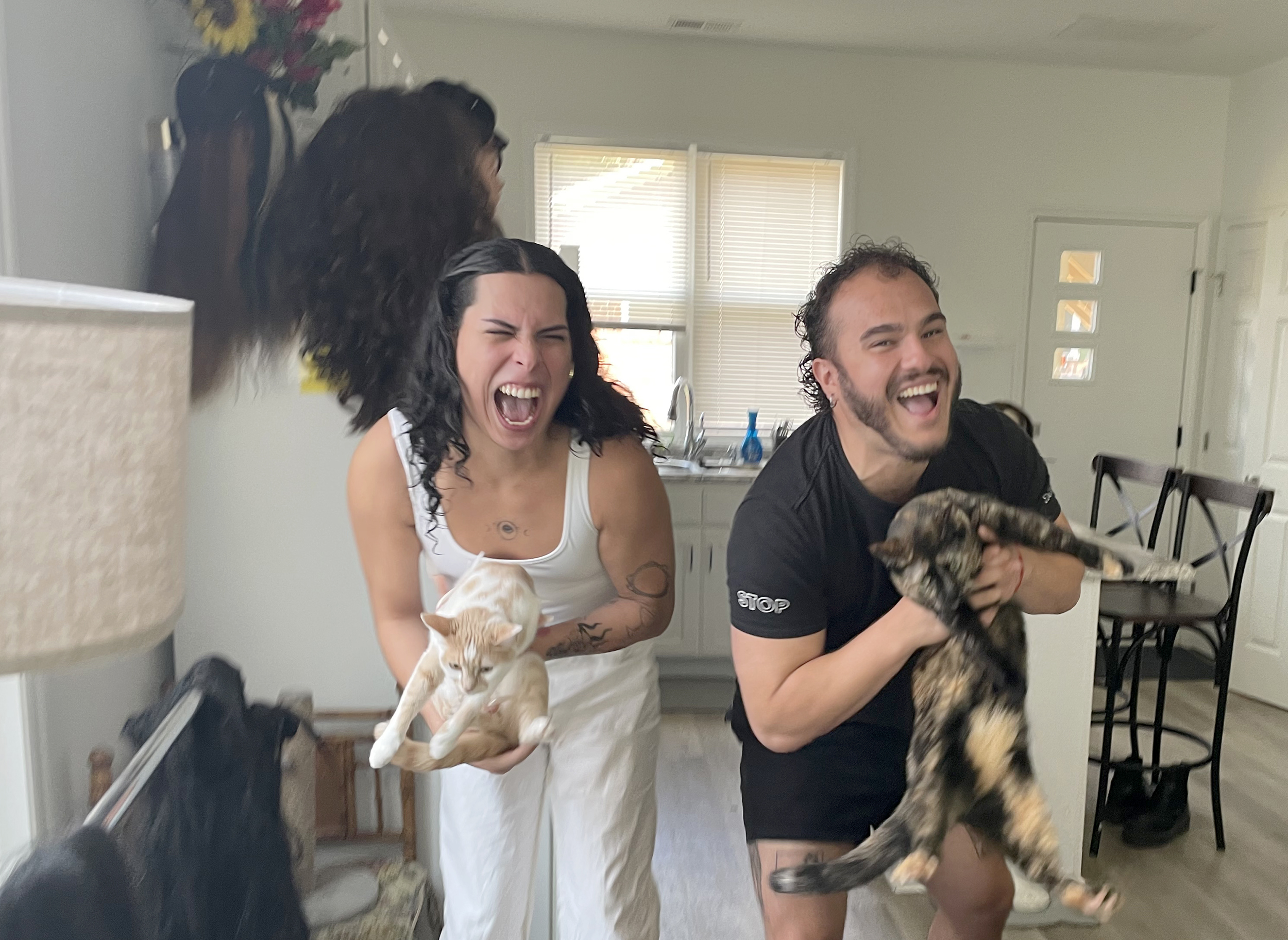
Miss B. Haven (left) and Kali Fuchis (right) pose together in full drag outside of Legends Nightclub after a political action theater event against anti-transgender legislation in Raleigh on May 16, 2023. Fuchis says that doing drag allows her to channel the powerful women of her past.
COURTESY OF KALI FUCHIS
Fuchis says her relationship with Miss B brings about memories of her mother and grandmother Mamí Azu, who passed away from cancer in 2016.
“I didn’t get to see my grandma growing up in her twenties,” says Fuchis. “And, it’s so cool to see someone’s personality and be like, ‘whoa! This is definitely someone that I could see my grandma being emulated as.’”
Fuchis says Miss B is the reason she continues to do drag, and through that, connect with the women who came before her — creating a home from within herself.
“I think my grandmother and my mom always lived within me,” says Fuchis.
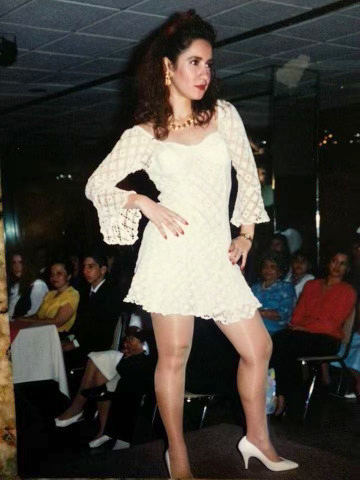
Fuchis’ mother, Paola Escalona, poses on stage after a modeling competition in 1994/1995 in Ecuador in which she won for “best legs.” Fuchis says that she did not realize until much later how her drag makes her look like her mother.
PHOTO COURTESY KALI FUCHIS
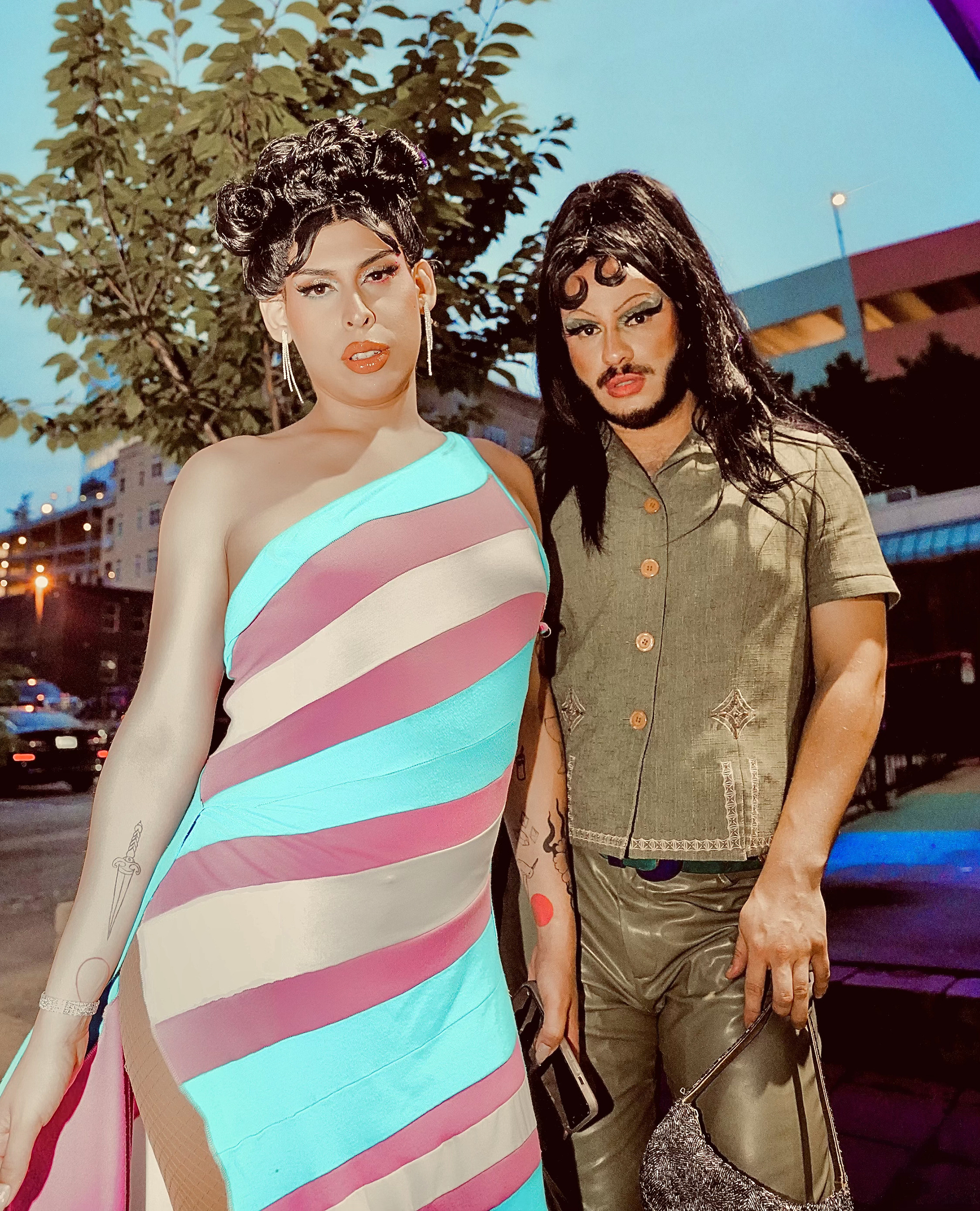
Kali Fuchis and Miss B. Haven pose together in full drag, Fuchis is wearing a green textured shirt with leather pants and Miss B. Haven is wearing a blue and pink-striped dress.
COURTESY OF KALI FUCHIS
